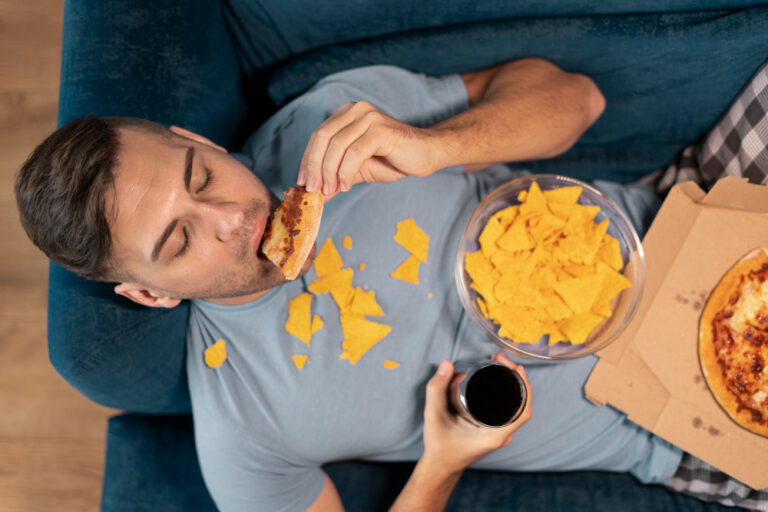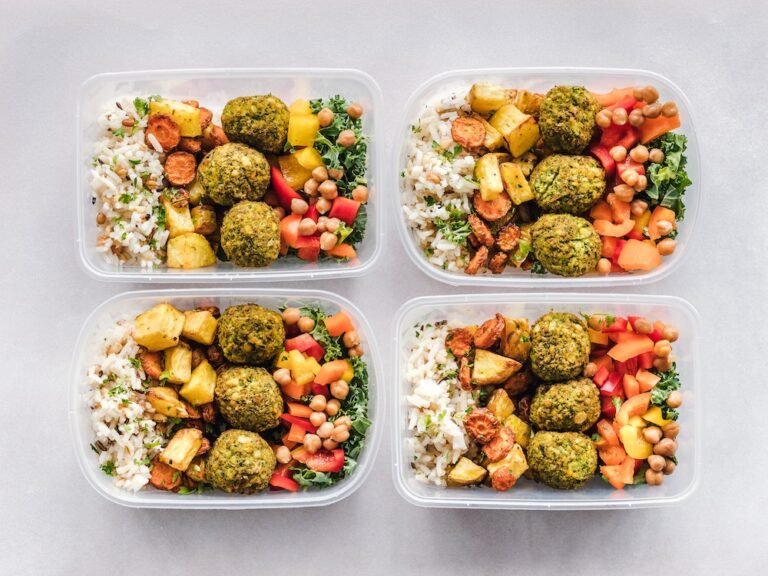Welcome to today’s blog post, where we’ll dive deep into the topic of improving your relationship with food. Our journey towards a healthier connection with what we eat is crucial for our overall well-being. In this post, we’ll discuss four common mistakes to avoid on this path of transformation. By steering clear of these pitfalls, you can enhance your relationship with food and foster a healthier mindset. So let’s jump right in and discover how to improve your relationship with food!
Mistake #1 - Weighing Yourself Continuously
One common mistake people make is placing too much emphasis on the number on the scale. We have been conditioned to associate our self-worth and progress solely with that number. However, this mindset can be detrimental to our mental and emotional well-being. Instead, focus on how you feel physically and mentally. Pay attention to your energy levels, mood, and digestive health. These factors provide better indicators of progress than the scale. Remember, your weight does not define you or your value as a person.
Mistake #2 - Rushing the Process
Impatience often arises during the healing process. We desire instant results and want to achieve our goals on our convenient timeline. However, rushing can lead to frustration and disappointment. Embrace the fact that healing your relationship with food is a journey, not a race. Be patient with yourself and trust the process. Success is not linear; there will be ups and downs. Allow yourself to learn, grow, and make progress at your own pace.
Mistake #3 - Setting Unrealistic Expectations
Perfectionism and unrealistic expectations can sabotage your progress. Many of us fall into the trap of all-or-nothing thinking, wanting everything to be perfect. However, striving for perfection only leads to feelings of failure and criticism. Instead, set realistic and achievable goals. Celebrate every step forward, no matter how small. Remember, progress is progress, and each win brings you closer to a healthier relationship with food.
Mistake #4 - Excessive Food Tracking
While food tracking can be helpful in some cases, excessive tracking can become obsessive and counterproductive. It’s part of the “control” we desire around food yet it’s the very thing that actually takes us in the opposite direction (Learn more about this in my free training). It’s essential to let go of rigid tracking and embrace a more intuitive approach. Focus on learning your hunger and fullness cues, practicing relaxed and nourished eating, and exploring what truly nourishes your body. Give yourself permission to listen to your body’s needs and trust your intuition. Freedom from excessive tracking can lead to a more mindful and enjoyable eating experience.

Improving your relationship with food is a transformative journey that requires patience, self-compassion, and a willingness to let go of old habits and beliefs. By avoiding the common mistakes of continuous weighing, rushing the process, setting unrealistic expectations, and excessive tracking, you can pave the way for a healthier and more balanced connection with what you eat. Embrace the journey of self-discovery, practice mindful eating, and cultivate a positive food environment. Remember, progress is a personal and unique experience, and every step forward is a step towards a more nourished and fulfilling life.
We’re here for you. Check out all the ways we can work with you to get rid of your diet-binge eating cycles once and for ALL.
Enjoy this article or video? Please share, 50% of Americans secretly struggle with their relationship with food.














